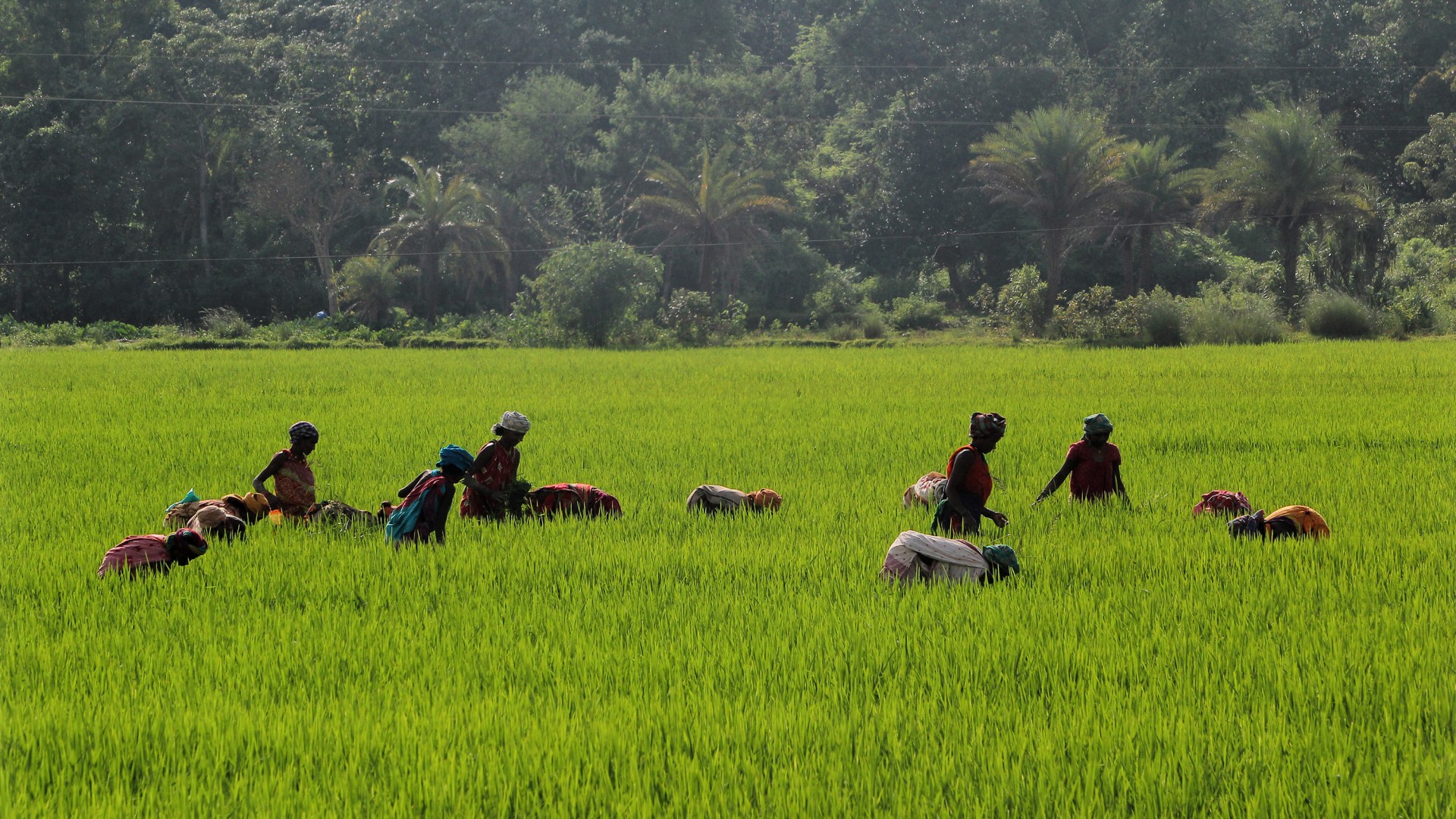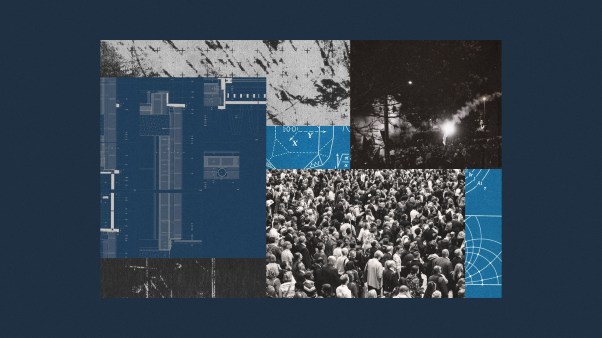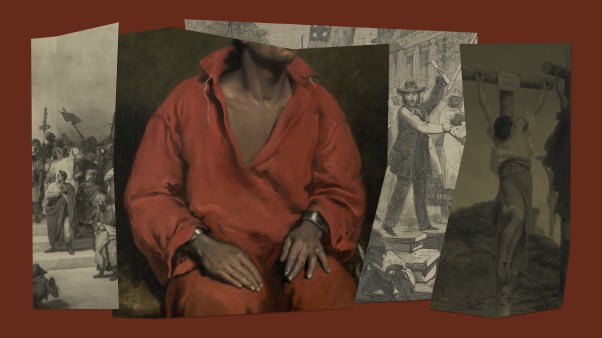In Malkangiri district of Odisha state in eastern India, tribal Christian farmers gathered on an overcast Saturday in June for an annual prayer gathering for the upcoming sowing season. The farmers placed their earthen pots filled with seeds by the pulpit, then knelt as the pastors blessed the seeds.
Suddenly, a mob of 200 Hindu fundamentalists attacked. Pictures from the site on June 21 show broken pots and pools of blood that turned a place of blessing and worship into a scene of horror.
When church members held a peace rally on the street outside the district administration office, condemning the attack, they became the focus of the police’s attention, said Bipul Prasad, the pastor who had planted the church.
While there is no evidence that police registered a case against the perpetrators, “we are now being framed with a false case,” Prasad said with quiet resignation.
Prasad, 49, is accustomed to this type of treatment for his faith. For the past two decades, Prasad has faced beatings, financial loss, and police surveillance for his ministry to reach his own Koya tribe with the gospel. Christianity Today agreed not to use Prasad’s real name or any of his identifiable information, as he could face increased attacks from Hindu nationalist groups.
Yet persecution hasn’t stopped the gospel from spreading in the rugged and densely forested Malkangiri district. Today, Prasad and a team of 25 disciples oversee the 72 churches he has planted in Malkangiri while continuing to share the Good News of the “God of love” to the Koya tribal community, he said. Besides being a pastor, Prasad is also an activist who uses his experience of suffering to counsel Christian victims of persecution, raise cases with police, and pursue legal remedies.
“From a human point of view, it is very scary out there, and I won’t be able to step out of my home. But the Holy Spirit reminds [me] that ‘for when I am weak, then I am strong,’” he said, quoting 2 Corinthians 12:10.
With the rise of the Hindu nationalist Bharatiya Janata Party (BJP) to national power in 2014, the tribal heartlands of Odisha and Chhattisgarh have become battlegrounds between tribal Christians and Hindu nationalists, according to A. C. Michael, the national coordinator of the United Christian Forum (UCF).
In Odisha, the UCF documented 14 incidents of physical assault, damage to property, restrictions on religious assembly, intimidation, and harassment in 2024, up from single digits a decade ago. The neighboring state of Chhattisgarh reported 165 incidents in 2024, up from 29 incidents in 2014. UCF added a caveat that its data is based solely on self-reporting by the victims. The real figures could be much higher, as most incidents go unreported due to fear of retribution.
Prasad’s first brush with persecution came in 2007. Villagers in the remote hamlet of Koikonda warned the young pastor not to visit and spread the “foreign religion,” he said. Yet Prasad still quietly went to pray with two new converts. About 20 minutes later, around 200 people mobbed the house they were in, cursing him.
The two new converts escaped, but the armed men attacked Prasad with sticks and stones until he fell unconscious. The next thing he remembers is waking up in the hospital, regaining consciousness from a coma after six days. He had injuries on his head, chest, abdomen, and legs. It took months to recover.
Sensing trouble in Odisha, Prasad’s mission organization sent him to minister in Jagdalpur and Bilaspur in the neighboring Chhattisgarh state in 2008. Yet his heart longed for his home of Malkangiri. For a year, he preached the gospel in Chhattisgarh, all the while praying for clarity about God’s plan for his life and ministry.
During one of his night prayers, he said he heard Jesus tell him, “What about Malkangiri?”
So after leading a New Year service in Bilaspur in January 2009, he resigned from the missionary organization and headed back to Malkangiri. He moved to the Koya village of Gongola.
Many of Prasad’s fellow ministers questioned his decision to move back to Odisha, where Christians faced great opposition. Hindu fundamentalist groups prowled tribal areas, attacking Christian converts. Fear still gripped Christians in the state after mobs burned and killed Australian missionary Graham Staines and his two sons in 1999.
Within months after Prasad returned, Odisha witnessed the horrific Kandhamal violence, where Hindu extremists killed more than 100 Christians and razed 6,500 homes, 400 churches, and Christian institutions.
Yet Prasad hoped for a revival, motivated by his call to return to Malkangiri. He quietly went to tribal hamlets to tell locals about the Good News of Jesus. He held small prayer gatherings. He avoided using loudspeakers like other evangelists so he wouldn’t draw attention to himself. Collaborating with fellow pastors in the villages, he nurtured converts in their newfound spiritual journeys.
Still, he had frequent run-ins with Hindu fanatics who opposed him for allegedly “forcibly converting people to a foreign religion,” he said.
In 2011, Prasad started a school with 20 tribal children on a piece of land donated by one of the new converts. He hired young adults from Christian families as teachers and offered free education to children from poor families.
The school drew support from locals of all religions. Villagers petitioned local authorities to support and expand the school’s work. In 2015, the local administration allotted a one-acre plot outside the village to build a proper building, which went on to provide education to 250 tribal children from 30 nearby villages. It was the only English-language school within a 100-kilometer (62-mile) radius, Prasad said.
With the school garnering popular support locally, the Hindu extremist organization Rashtriya Swayamsevak Sangh (RSS) began to spread misinformation. It accused the school’s management of distributing Bibles and conducting Christian prayers every day with an intention to convert the children. Yet Prasad noted that the school never pressured the students to convert or to join in prayers.
“It was a conspiracy by the RSS, as one of its leaders opened a school locally in 2016,” Prasad said. “The intention behind the propaganda was to take away children from my school.”
In June 2019, the local administration sent a notice to Prasad, accusing him of illegally operating the school on government land. Despite relevant paperwork to reject the claim and protests by students and parents, the government razed the school to the ground. The destruction left 250 children without a school, and it did even more damage: Prasad, his family, and 12 orphans had lived on the campus. They had to find a new home.
“It felt as if life had been snuffed out of me as the buildings came crashing down,” Prasad said. “Hundreds of contributions, years of strenuous efforts, and close to Rs 70 lakh [about $80,000 USD] were destroyed in a matter of minutes.”
Yet paradoxically, the destruction of the school led more locals to Christ. As villagers saw Prasad pray for the attackers, they noticed a difference between his message of peace and the RSS’s message of hatred. Prasad said many locals believed in Jesus as a result. “The Lord works in mysterious ways,” he said.
To date, Prasad said, he has baptized 700 people. His ministry shepherds nearly 3,500 tribal Christians across 72 churches. Most churches meet in thatched-roof homes, backyards, or mats spread out under trees in the fields.
Due to his own experiences facing persecution from Hindu nationalists, Prasad advocates for the rights of tribal Christians, organizing peaceful protests, raising issues with local authorities, and participating in Malkangiri’s Christian forums to push for justice and protection. He faces increasing challenges: The little legal, financial, and material aid he receives from Christian organizations outside Malkangiri is also becoming hard to come by due to rising scrutiny of Christian relief work.
Yet Prasad continues to take the gospel to the remotest corners of Malkangiri, whether by worn-out cars or by motorbikes or by foot. He looks up to 19th-century Africa missionary David Livingstone as he clings to Philippians 1:21, which says, “For to me, to live is Christ and to die is gain.”














